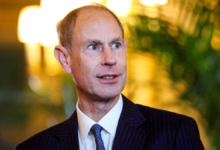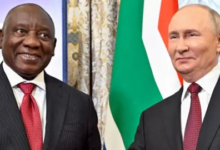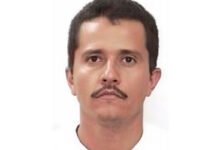WTO: An African head could make difference
With three of the eight candidates to become the next leader of the World Trade Organization (WTO) coming from Africa, BBC Africa business editor Zawadi Mudibo looks at what difference having one of them at the helm would make for the continent.
There is a growing feeling among African diplomats that someone from the continent should be at the helm of one of the world’s top economic institutions.
Whereas an American has always led the World Bank and a European has always been at the head of the International Monetary Fund, an African has never taken an equivalent position.
But if one from Nigeria’s Ngozi Okonjo-Iweala, Kenya’s Amina Mohamed or Egypt’s Abdel-Hamid Mamdouh emerges from the long selection process as the WTO’s next director-general, the continent can feel that it is playing in the same league as the rest of the world.
The WTO sets the rules for global trade and adjudicates in trade disputes between nations. It is also, according to its website, supposed to “open trade for the benefit of all”.
The Geneva-based organisation’s ability to get global agreements of basic principles that every country signs up to has been hamstrung in recent years but the WTO leader has influence and a bully pulpit. The director-general attends G7 and G20 meeting and can broker disputes between world leaders.
But is there more to be gained for the continent aside from the diplomatic profile?
Though the director-general’s role is primarily one of an administrator, an African leader could help ensure that the interests of the continent are taken into account in WTO activities.
Trade talks may seem esoteric and take place behind closed doors, but their outcome can affect everyone’s lives.
From the small trader who crosses a border several times a month, to the consumer buying an imported item in a market, to someone with a job in a manufacturing industry: they are all affected by the rules of trade.
In Africa, trade is viewed as a driver of growth, a way towards sustainable development and as a tool for poverty eradication.
“Foreign aid will not do it for Africa. Like everywhere else throughout history it is trade,” says David Luke, head of the trade policy centre at the UN’s Economic Commission for Africa. -BBC






